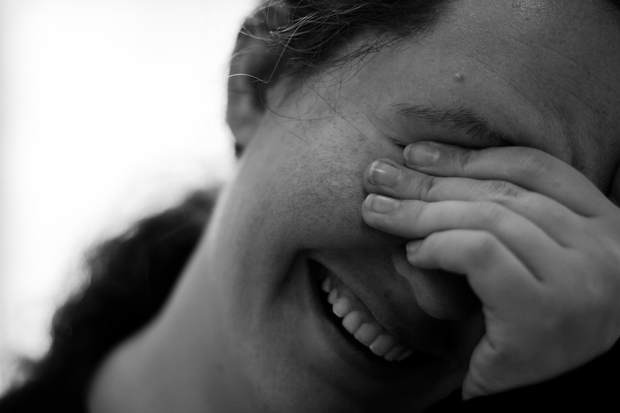My Two most memorable experiences from
shadowing days
There were so many wonderful things I learned about dentistry through shadowing, and I’d like to share the two most memorable stories I recall. I hope you find them entertaining and insightful. At the end of each, I’ll briefly tell you what I learned from the experience and what advice I’d like to pass along to you.
"How hard are you pulling
on that tooth?"
It was my first day of shadowing. I had picked out my suit the night before, made a list of some of the recommended questions to ask the dentists, and woke up an extra hour early to make sure I looked perfect. I knew I wanted to ask this dentist to eventually write my letter of recommendation, so I needed to make a great first impression.
I was living in Greensboro, NC, at the time and I was to meet with the providers at their the office about 90 minutes away. Along the way I stopped off to grab a quick iced coffee from a Dunkin Doughnuts, knowing it would help energize me for a long day. I got back into the car and spilled a good two gulps down my blouse. Awesome, Lindsey. Way to make a good first impression.
When I arrived to the office I was warmly welcomed by the staff. Noting my embarrassment without saying a word, one of the assistants quickly grabbed a lab coat for me and asked me to wear it. She explained that wearing the correct PPE (Personal Protective Equipment) was a requirement in the office and that it would make patients feel more at ease. Really, I think it was her gentle way of putting me more at ease before I met with the dentists.
Since the traffic had put me a few minutes behind my scheduled arrival, I missed the lead provider’s first procedure. So, I asked another dentist if I could shadow him. He welcomed me into his surgical suite and explained the procedure: extractions of all remaining teeth in both the mandible and maxilla, followed by a bone graft.
As he became administering anesthesia to the patient, the assistant showed me where to stand and instructed me to put on protective eyewear, surgical masks, and gloves.
The first few teeth came out with little resistance. I remember thinking that extraction did not really seem like a complicated procedure. As a pre-dental observer with no experience or appreciation of what lay beneath the gums, it really looked like a simple twist and pull. Then came the molars.
These were the ones the dentist had warned me about. The impacted teeth. These were going to require extra technique and skills. He began removing the tooth with more strength that he had used on the previous ones. Remembering the importance of asking questions when shadowing, I found the perfect one.
“This one seems a bit tougher to remove. Why is that and how much force are you using?”
He looked up and replied, “Oh, almost nothing at all.” I could see him grimacing behind his surgical mask and the muscles in his arm tightening. Suddenly, I felt myself wanting to melt into the floor because I knew what offense I had just committed. Geez, Lindsey. Think before you speak. The patient was still fully conscious and was now even more anxious about the procedure. I limited my questions for the rest of the procedure and profusely apologized afterwards. Graciously, he and the patient understood the rookie mistake.
What I learned: It is perfectly fine and expected that you will ask questions. After all, you are there to learn from the providers. Please, though, think the questions through before you ask them. Should the question wait until you are out of the patient’s earshot? My general answer is yes. If you don’t know, ask yourself if you would want a stranger asking questions about your dental care problems in front of you.
I was living in Greensboro, NC, at the time and I was to meet with the providers at their the office about 90 minutes away. Along the way I stopped off to grab a quick iced coffee from a Dunkin Doughnuts, knowing it would help energize me for a long day. I got back into the car and spilled a good two gulps down my blouse. Awesome, Lindsey. Way to make a good first impression.
When I arrived to the office I was warmly welcomed by the staff. Noting my embarrassment without saying a word, one of the assistants quickly grabbed a lab coat for me and asked me to wear it. She explained that wearing the correct PPE (Personal Protective Equipment) was a requirement in the office and that it would make patients feel more at ease. Really, I think it was her gentle way of putting me more at ease before I met with the dentists.
Since the traffic had put me a few minutes behind my scheduled arrival, I missed the lead provider’s first procedure. So, I asked another dentist if I could shadow him. He welcomed me into his surgical suite and explained the procedure: extractions of all remaining teeth in both the mandible and maxilla, followed by a bone graft.
As he became administering anesthesia to the patient, the assistant showed me where to stand and instructed me to put on protective eyewear, surgical masks, and gloves.
The first few teeth came out with little resistance. I remember thinking that extraction did not really seem like a complicated procedure. As a pre-dental observer with no experience or appreciation of what lay beneath the gums, it really looked like a simple twist and pull. Then came the molars.
These were the ones the dentist had warned me about. The impacted teeth. These were going to require extra technique and skills. He began removing the tooth with more strength that he had used on the previous ones. Remembering the importance of asking questions when shadowing, I found the perfect one.
“This one seems a bit tougher to remove. Why is that and how much force are you using?”
He looked up and replied, “Oh, almost nothing at all.” I could see him grimacing behind his surgical mask and the muscles in his arm tightening. Suddenly, I felt myself wanting to melt into the floor because I knew what offense I had just committed. Geez, Lindsey. Think before you speak. The patient was still fully conscious and was now even more anxious about the procedure. I limited my questions for the rest of the procedure and profusely apologized afterwards. Graciously, he and the patient understood the rookie mistake.
What I learned: It is perfectly fine and expected that you will ask questions. After all, you are there to learn from the providers. Please, though, think the questions through before you ask them. Should the question wait until you are out of the patient’s earshot? My general answer is yes. If you don’t know, ask yourself if you would want a stranger asking questions about your dental care problems in front of you.
Fitting into the
screaming child's sneakers
I shadowed several pediatric dentists because that’s a field I’m really interested in. I adore children and preventative dentistry, so I’m looking into specializing in pediatrics.
When I tell some of my friends that I want to specialize my training in special needs and pediatric dentistry, they ask me if I’m crazy. Well, maybe, but that’s besides the point. I think I have a good sense of sympathy. I’m pretty good about being able to place myself in another person’s situation and alter my approach to make them more comfortable.
Going to the dentist has never been something I’ve really looked forward to doing because I’ve always been weary that the provider will shame me if I developed a cavity or didn’t floss everyday. I’ve never been terrified of the appointments, I’m just not very fond of them.
I didn’t realize the intense fear some children had about the dental office until I stepped into my first pediatric suite for a shadowing opportunity. Though some children were distracted by the treasure chest and video games, others were begging their parents to take them home. I felt sorry for these children who sounded like prisoners terrified of the jail they were trapped within.
I remember shadowing a procedure that involved a simple filling on a young child. Tears streamed down her face as she begged the dentist to call off the procedure. The dentist explained to her that she wouldn’t feel a thing, but that didn’t stop her pleas. Feeling sympathy for the girl, I asked the dentist if I could hold her hand through the procedure. She agreed, and I started distracting the girl by telling her how pretty her dress was, making funny faces, and telling her funny things my sisters and I did together when we were her age. After the procedure was finished, she hugged me and ran off to her mom.
Here’s what I learned from this: Dentistry requires you to know your stuff and know how to interact with patients. Whether you are working on screaming children who need to be calmed down or with wealthy celebrities who want veneers, you have to develop compassion and the ability to sympathize with your patient. People are generally nervous of needles and cold instruments in their mouths. You would be too. Be patient with your patients. Even the smallest of them.
When I tell some of my friends that I want to specialize my training in special needs and pediatric dentistry, they ask me if I’m crazy. Well, maybe, but that’s besides the point. I think I have a good sense of sympathy. I’m pretty good about being able to place myself in another person’s situation and alter my approach to make them more comfortable.
Going to the dentist has never been something I’ve really looked forward to doing because I’ve always been weary that the provider will shame me if I developed a cavity or didn’t floss everyday. I’ve never been terrified of the appointments, I’m just not very fond of them.
I didn’t realize the intense fear some children had about the dental office until I stepped into my first pediatric suite for a shadowing opportunity. Though some children were distracted by the treasure chest and video games, others were begging their parents to take them home. I felt sorry for these children who sounded like prisoners terrified of the jail they were trapped within.
I remember shadowing a procedure that involved a simple filling on a young child. Tears streamed down her face as she begged the dentist to call off the procedure. The dentist explained to her that she wouldn’t feel a thing, but that didn’t stop her pleas. Feeling sympathy for the girl, I asked the dentist if I could hold her hand through the procedure. She agreed, and I started distracting the girl by telling her how pretty her dress was, making funny faces, and telling her funny things my sisters and I did together when we were her age. After the procedure was finished, she hugged me and ran off to her mom.
Here’s what I learned from this: Dentistry requires you to know your stuff and know how to interact with patients. Whether you are working on screaming children who need to be calmed down or with wealthy celebrities who want veneers, you have to develop compassion and the ability to sympathize with your patient. People are generally nervous of needles and cold instruments in their mouths. You would be too. Be patient with your patients. Even the smallest of them.
Already had your shadowing experiences? Ready to move onto the letter of recommendation? Check our my article
How to Ask For a Letter of Recommendation!
How to Ask For a Letter of Recommendation!

